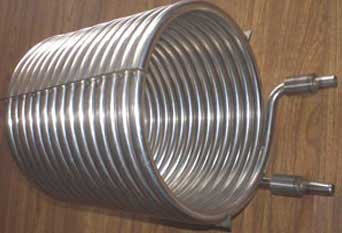Fuel tanks are an essential component in various industries, such as automotive and industrial. The functionality of these fuel tanks depends on the material used to manufacture them. For many years, stainless steel coils have been the preferred choice for constructing fuel tanks because of their outstanding properties, such as strength, durability, and corrosion resistance. This blog focuses on the reasons why stainless steel coils are essential in the production of fuel tanks and how the significance of stainless coil tubing will help achieve efficiency and reliability.
Strength and Durability
Fuel tanks are exposed to high pressure, shock, and varied temperature conditions. Stainless steel coils provide adequate strength to withstand these stresses without losing their structural integrity. Durability ensures that fuel tanks work in harsh environments like long-distance haul transportation and industrial applications efficiently.
Superior Corrosion Resistance
One of the major reasons stainless steel coils are used for fuel tanks is their resistance to corrosion. Fuel tanks are mostly exposed to water, fuel additives, and other corrosive materials that will break down the lesser material over time. The corrosion-resistant properties of stainless steel ensure the longevity of the tanks, reducing the replacement or costly maintenance of the tanks. This makes it a cost-effective choice for manufacturers.
Lightweight and Versatile
Modern industries require light yet strong materials, and in some industries, including automotive and aerospace, removing weight helps to increase fuel efficiency. Stainless steel coils balance both of these criteria. Its flexibility allows stainless steel coils to be fabricated into any size and design requirement, making it possible for manufacturers to produce customized fuel tanks tailored to meet specific needs.
Suitability for Advanced Fabrication Processes
Stainless steel coils are suitable for advanced manufacturing techniques like welding, bending, and forming. This flexibility makes the production process easier and enables the production of high-quality fuel tanks with accurate dimensions and performance. Stainless coil tubing is particularly known for precision and reliability, making it suitable for fuel systems that require complex designs and tight tolerances.
Improved Safety
Safety is a major issue when it comes to fuel storage and transportation. Stainless steel coils contribute to this by providing a leak-proof and durable solution. The non-reactive nature ensures that the fuel does not get contaminated, which maintains its quality and reduces the possibility of chemical reactions that could lead to hazardous situations.
Environmental Sustainability
Sustainability is a growing concern in manufacturing. Stainless steel coils are 100% recyclable, making them an eco-friendly option for fuel tank production. Manufacturers who prioritize sustainability can benefit from using stainless steel, as it minimizes environmental impact without compromising quality or performance.
The Role of Stainless Coil Tubing
Stainless coil tubing is also used in fuel tanks and plays a critical role in the infrastructure of the fuel system. Its precision and durability make it ideal for fuel lines, ensuring smooth and efficient fuel transfer. Stainless coil tubing complements the functionality of fuel tanks by maintaining the integrity of the entire fuel delivery system.
Applications Across Industries
The stainless steel coils are useful in industrial fuel storage systems, marine applications, and also in aerospace fuel tanks. The stainless steel coils can be used in a wide range of industries, therefore presenting performance and versatility for critical applications. Conclusion
Stainless coil tubing is the most critical part of the production of fuel tanks because it provides unmatched durability, corrosion resistance, and versatility in performance. Such properties ensure that manufacturers have quality fuel tanks designed to satisfy the requirements of contemporary industries. The stainless coil tubing ensures that fuel systems function well and without interruptions, which is crucial for many applications.
Choosing stainless steel coils and tubes as their material of choice, producers enhance the performance of the fuel tanks while contributing positively to a greener planet. This quality, coupled with safety and eco-friendliness, is why stainless steel dominates the world’s production of fuel tanks.


